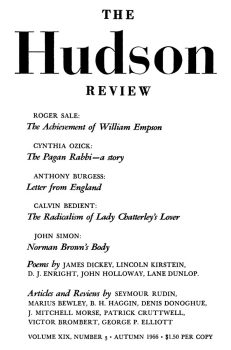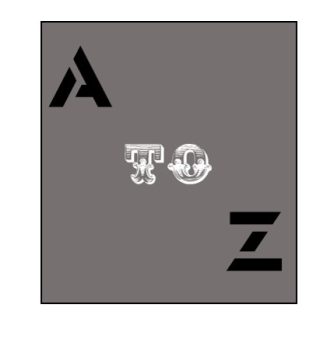Over the past several years, I’ve embarked on a series of year-long review cycles at Black Gate. In 2018, I reviewed a story-a-day to coincide with an author whose birthday it was. In 2022, I selected stories completely at random from my collection to review. In both of those cases, the projects served to find forgotten and minor works of science fiction that spanned a range of years. They also served to make me read stories and authors who I haven’t read before, even if they were in my collection.
For this year’s project, I’ve compiled a list of all the stories and novels in my collection. I then identified the first and last works for each letter of the alphabet and over the next twelve months, I’ll be looking at those works of fiction, starting with Vance Aandahl’s “Bad Luck” and ending with David Lee Zweifler’s “Wasted Potential.” Looking at the 52 works (two for each letter), I find that I’ve only reviewed one of the works previously. Interestingly, given the random nature of the works, only three novels made the list, while four anthologies have multiple stories on the list. The works range in publication date from 1911’s “The Hump,” by Fernan Caballero to Zweifler’s story from last year.
The letter O provides another one of those nice coincidences in stories. Last week, I reviewed Jack Oakley’s “Fiat Silva” which explored a young boy’s commune with nature. This week, Cynthia Ozick writes of a rabbi who similarly communes with nature, although with a darker outcome.
 Ozick’s “The Pagan Rabbi” tells the story of two men who grew up together, both sons of rabbis who seemed destined to follow in their fathers’ footsteps, but took vastly different paths. The narrator dropped out of rabbinical school, married a non-Jewish woman, and eventually opened a bookstore. His friend, Isaac Kornfeld, followed the path that was meant for him, becoming a rabbi and marring a Jewish woman, Sheindel.
Ozick’s “The Pagan Rabbi” tells the story of two men who grew up together, both sons of rabbis who seemed destined to follow in their fathers’ footsteps, but took vastly different paths. The narrator dropped out of rabbinical school, married a non-Jewish woman, and eventually opened a bookstore. His friend, Isaac Kornfeld, followed the path that was meant for him, becoming a rabbi and marring a Jewish woman, Sheindel.
Although their friendship suffered from their different paths, the two men rebuilt their relationship in a way as the narrator provided the books Rabbi Kornfeld desired, which also gave him some insight into the rabbi’s thoughts and interests.
The story focuses on the narrator trying to understand why Rabbi Kornfeld chose to commit suicide. In order to do so, he visits Isaac’s widow, Sheindel, and the two talk about Isaac’s life and the changes as Isaac became attuned to the natural world around him, a process that made Sheindel believe he was accepting pagan beliefs.
Many of Isaac’s beliefs and thoughts are told in the first person as Sheindel hands the narrator Isaac’s notebooks and a letter that he wrote shortly before his death. It is clear that the life Isaac was expected to lead, and seemed to be leading, did not offer him everything he was looking for. Isaac yearned to be free of his rabbinic duties and the park where he eventually killed himself became either a symbol of that freedom or a personification of that freedom, filled with the spirits of nature.
Isaac’s feelings of being entrapped are at odds with his wife’s experience. While Isaac was born into a family of rabbis who were free to practice their religion, Sheindel was born in Europe and as a child was in a Nazi Concentration Camp where she was thrown against an electrified fence, but managed to survive. Despite the horrors she saw, her faith doesn’t waver the way Isaac’s does. Similarly, although the narrator turned his back on the rabbinate and married (and divorced) a non-Jewish woman, his faith appears to be intact as well, although he represents the assimilated Jew.
Ozick’s story is deeply philosophical with lengthy passages the from Isaac’s writings providing the meat of the story in what amount to data dumps of information, occasionally broken up by Sheindel and the narrator discussing the implications of what Isaac has written or how the life he lived with his wife and daughters illustrated the thoughts he was having.
While some science fiction and fantasy is a quick, light read, and other SFF provides a deeper view of life, “The Pagan Rabbi” offers that deeper view of life, but is not meant to be read, or understood, quickly. This is the type of story that is meant to be thought about after the book is closes and even invites subsequent reading to clarify the messages Ozick is writing.
 Steven H Silver is a twenty-time Hugo Award nominee and was the publisher of the Hugo-nominated fanzine Argentus as well as the editor and publisher of ISFiC Press for eight years. He has also edited books for DAW, NESFA Press, and ZNB. His most recent anthology is Alternate Peace and his novel After Hastings was published in 2020. Steven has chaired the first Midwest Construction, Windycon three times, and the SFWA Nebula Conference six times. He was programming chair for Chicon 2000 and Vice Chair of Chicon 7.
Steven H Silver is a twenty-time Hugo Award nominee and was the publisher of the Hugo-nominated fanzine Argentus as well as the editor and publisher of ISFiC Press for eight years. He has also edited books for DAW, NESFA Press, and ZNB. His most recent anthology is Alternate Peace and his novel After Hastings was published in 2020. Steven has chaired the first Midwest Construction, Windycon three times, and the SFWA Nebula Conference six times. He was programming chair for Chicon 2000 and Vice Chair of Chicon 7.






















